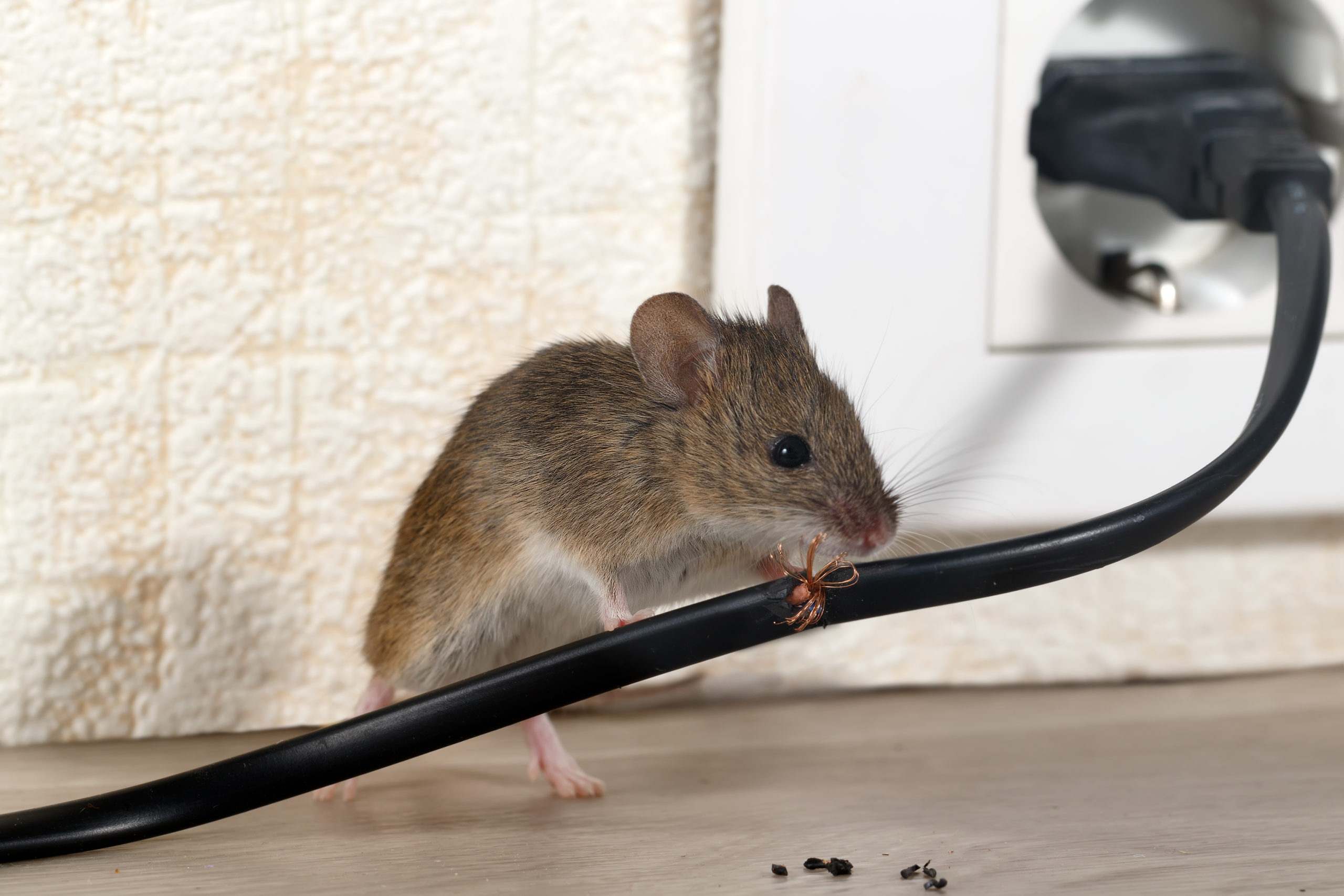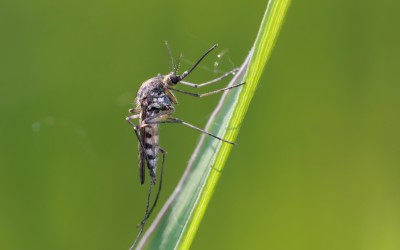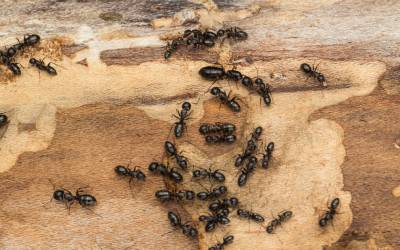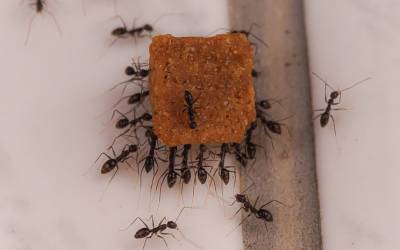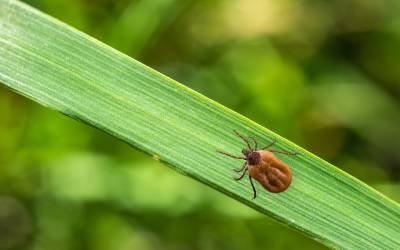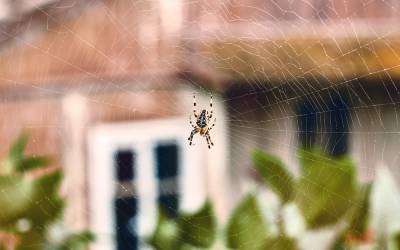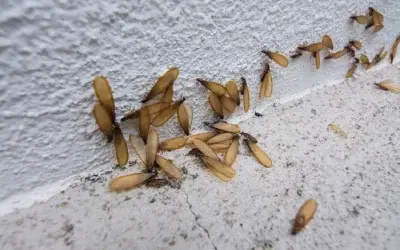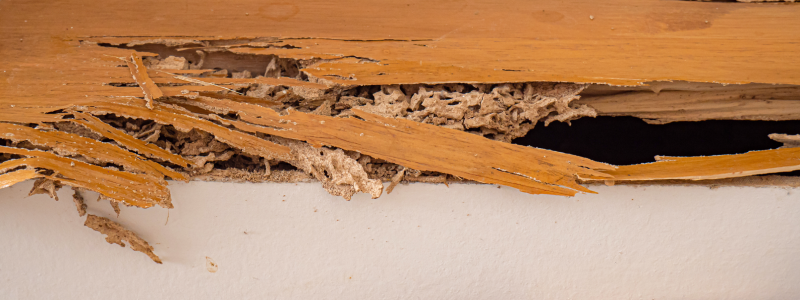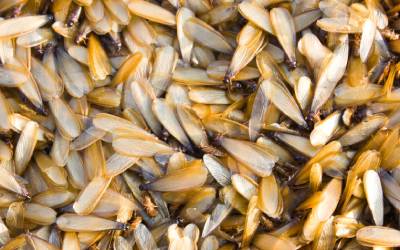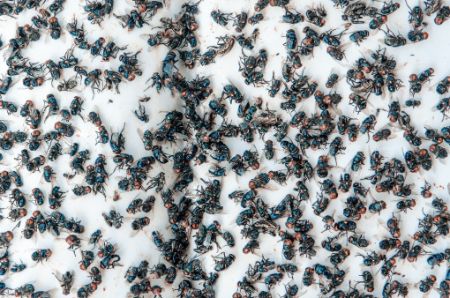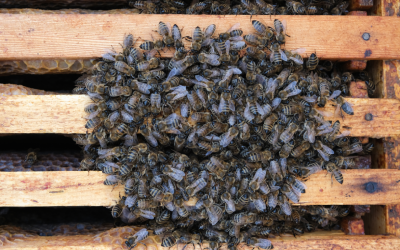Rat and mouse droppings aren’t something you want to find in your home. The average mouse produces up to 100 pellets a day, and these dark brown lumps are a surefire sign of an infestation within the home. What are the potential health risks that come from exposure to mouse poop? What should you do if you find evidence of rodents in the home, and who can you call for reliable rat and mouse removal in Tennessee? The Bug Man is here for rodents as well as insects, and we have the answers to all of those questions and more.
Mouse vs Rat Poop
Mouse droppings and rat droppings are fairly similar but easy to distinguish if you know what you’re looking for. Since rats are considerably larger than other forms of rodents, their droppings are also bigger, as well as rounded in a shape similar to raisins or coffee beans. Mouse poop, on the other hand, is only around 1/8 to 1/4″, closer to the size and shape of a grain of rice. Another indicator of rats versus mice is location. Rats are known for defecating essentially anywhere they wish, while mice designate a specific area separate from their nest to use as a toilet.
There are other pests that may leave droppings similar to rodents. Cockroaches, as an example, leave poop roughly the same size as mice – although their droppings are blunt around the ends rather than pointed. And squirrel poop looks a lot like rat poop, but their droppings are rounded at the edges as opposed to tapered. Regardless of the shape or size, though, mysterious piles of droppings in your home are something that needs to be taken care of as soon as possible. If left alone they can pose a health risk and a danger to the structure of your house itself.
Rat Poop Risks
It’s safe to say that the droppings of any animal are unpleasant to be around. Feces transfer diseases, and mouse poop is no expectation. The main offender, and the biggest danger to humans, is the possibility of being exposed to Hantavirus. Hantavirus is a potentially life-threatening respiratory illness transferred from rodents to humans through urine, droppings, or even saliva. Not every rat or mouse is necessarily infected, but those who are leave the virus in every pile of droppings they make. It makes even cleaning up the mess potentially dangerous, as disturbing the poop will cause the virus to be released into the air.
So if you find droppings it’s crucial not to vacuum or sweep them up. Instead, don a pair of rubber or plastic gloves and spray the area with bleach or disinfectant before carefully wiping it up with a paper towel. From that point on you can clean the surrounding area by mopping, vacuuming, and steam cleaning depending on the area infected. Doing all of this is the best way to avoid Hantavirus, as well as other illnesses that can be spread by rats like salmonellosis and rat-bite fever.
Other Mouse Poop Implications
Something that can’t be ignored is that, if you’re finding rodent poop around your property, you probably have rats or mice. Other signs of a rat or mouse infestation include chew marks on food packaging or through walls and floors. You’ll likely hear them, you’ll certainly smell them, and along with droppings, you may find scraps of fabric, paper, or other material used for creating nests. If you notice any of this, you need an exterminator to avoid damage such as:
- Nests burrowed into upholstered furniture
- Tunnels driven through insulation
- Chewing through wiring in walls or appliances, potentially causing a fire
- Chewed personal items around the area of nest
If you have a mouse or rat infestation, you need quality pest control, fast for the sake of your home and those who live in it. For homes in Central Tennessee, The Bug Man has the training and expertise you need to get rodent-free and stay there.
Pest-Free Living with The Bug Man
Rodent control is about more than removing mice or rats from your home. If we do that without addressing how they got in, it won’t be long before you’re dealing with the same problems all over again. We provide long-term control, including removal and exclusion, that focuses on your property as a whole. So, if you find a pile of droppings around your house, don’t wait to see what your rodent invaders have planned next. Contact The Bug Man today and take back control of your home.

